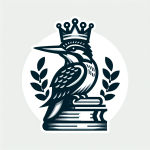Essential Financial Planning Guide for your Bookshop-Caf Venture
Starting a bookshop-caf that specializes in fiction and non-fiction nature-themed literature can be a rewarding venture for book lovers and caf enthusiasts alike. However, like any business, it is essential to have a solid financial plan in place to ensure the success and longevity of your venture. In this article, we will provide you with an essential financial planning guide to help you navigate the financial aspects of your bookshop-caf.
1. Start-up Costs
One of the first steps in financial planning for your bookshop-caf is to determine the start-up costs. This includes expenses such as leasing a space, purchasing inventory, equipment, furniture, and dcor, hiring staff, and marketing your business. Create a detailed list of all the expenses you will incur and research the costs associated with each to come up with an accurate estimate of your start-up costs.
2. Funding
Once you have determined your start-up costs, you will need to figure out how you will fund your bookshop-caf venture. You may choose to fund it yourself, seek out investors, apply for a small business loan, or explore crowdfunding options. Consider your financial situation and the risks involved in each funding option before making a decision.
3. Revenue Projections
Next, you will need to create revenue projections for your bookshop-caf. Research the demand for fiction and non-fiction nature-themed literature in your area, as well as the pricing of your products and services. Estimate how much revenue you expect to generate each month based on these factors, and adjust your projections as needed to reflect any changes in your business model.
4. Expenses
It is crucial to keep track of your expenses to ensure that your bookshop-caf remains profitable. Identify all the expenses associated with running your business, including rent, utilities, inventory costs, payroll, marketing, and any other overhead expenses. Track your expenses regularly and look for ways to reduce costs without compromising the quality of your products and services.
5. Cash Flow Management
Cash flow management is essential for the financial health of your bookshop-caf. Monitor your cash flow regularly to ensure that you have enough money coming in to cover your expenses and fund future growth. Consider setting up a cash reserve to cover any unexpected expenses or dips in revenue and establish payment terms with your suppliers and vendors to maintain a positive cash flow.
6. Pricing Strategy
Your pricing strategy will play a significant role in the success of your bookshop-caf. Research the pricing of similar products and services in your area and determine how much you need to charge to cover your expenses and make a profit. Consider offering promotions, discounts, and loyalty programs to attract customers and keep them coming back for more.
7. Marketing and Advertising
Marketing and advertising are essential components of financial planning for your bookshop-caf. Develop a marketing plan that includes both online and offline strategies to reach your target audience and promote your business. Utilize social media, email marketing, local events, and partnerships with other businesses to attract customers and build brand awareness.
8. Financial Monitoring and Reporting
Regularly monitor and report on the financial performance of your bookshop-caf to track your progress and make informed decisions. Keep detailed records of your revenue, expenses, cash flow, and profitability, and review them regularly to identify any areas that need improvement. Consider hiring an accountant or using accounting software to help you keep track of your financial data.
9. Contingency Planning
Lastly, it is essential to have a contingency plan in place for your bookshop-caf in case of unforeseen circumstances. Consider potential risks to your business, such as changes in the market, natural disasters, or a global pandemic, and develop a plan to mitigate these risks. Have insurance coverage for your bookshop-caf and consider setting aside emergency funds to protect your business in case of an emergency.
Conclusion
Financial planning is a crucial aspect of running a successful bookshop-caf that specializes in fiction and non-fiction nature-themed literature. By following the essential financial planning guide outlined in this article, you can ensure that your business is financially healthy and well-prepared to succeed in the competitive market. Remember to regularly review and adjust your financial plan as needed to adapt to changes in your business and the market to maximize your chances of success.

leave a comment